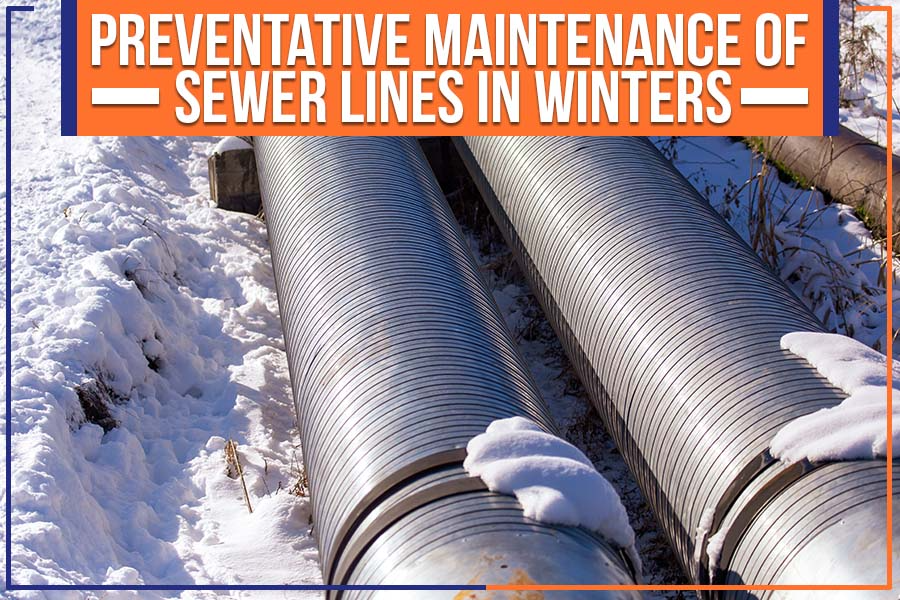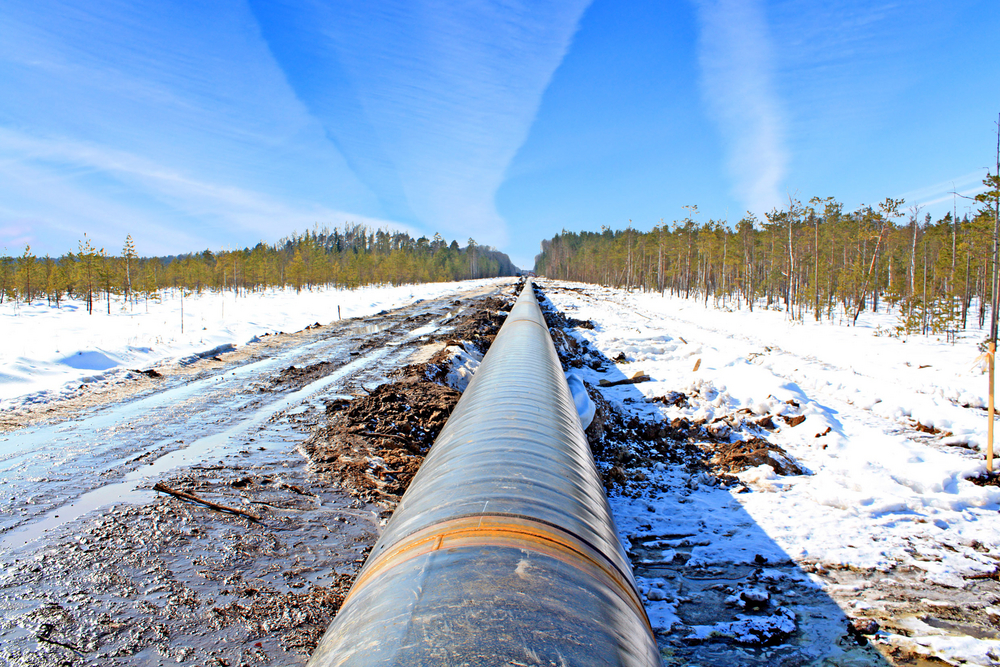
- Post author:admin
- Post published:December 16, 2022
- Post category:A Better Plumber Blog
Key takeaways:
- It’s important to reduce the possibility of unneeded clogs by not putting oil, grease, or fat down drains and disposing of food waste properly.
- Leaks in sewage lines have the potential to produce even more severe problems, including property damage and health issues for your family.
- You can prevent pipes from freezing by letting your faucets drip slightly overnight, keeping your house warm when you leave, and insulating sewer lines before cold weather hits.
- Regular cleaning of the sewage line is required to remove dirt and other things that might cause blockages and hinder the passage of waste.
It’s that time of year again! The leaves are dropping, the air is crisp, and residents are preparing for another long winter. But before you do, there’s one important thing you need to take care of your sewer lines. Yes, believe it or not, those plumbing arteries that whisk your waste away need a little TLC too. Here are a few tips by A Better Plumber & Sewer on preventative maintenance of your sewer lines this winter.
Tip 01: Understand Your Property
The property owner is responsible for the main sewer line up to the property’s perimeter, so familiarizing yourself with every part of your system is critical. According to statistics, one out of every ten homes has a leak that wastes at least 90 gallons of water daily. This is only one of the numerous reasons why many homebuying recommendations recommend employing cameras to explore the issue before acquiring a new house. In reality, it’s not a bad plan for existing properties.
Compiling a detailed inventory of all appliances linked to sewage pipes is also necessary. This encompasses anything from bathtubs to trash disposal equipment and should include pipes. A well-organized system will help you schedule annual maintenance while expediting fault-finding operations.
Analyzing all aspects of your plumbing systems, especially under sinks, allows you to detect tiny fractures and weaknesses before they become plumbing disasters.
Tip 02: Don’t Dump Anything Down the Drain Other Than Water
Clogged drains and sewage pipes cause many plumbing problems. Removing and cleaning the u-bend usually solves the problem when the obstruction is close to an appliance. On the other hand, blockages can occur at any point in the system. As a result, one of the wisest things you can do as part of your sewage line maintenance is to reduce the possibility of unneeded clogs. It necessitates a long-term commitment from the entire family.
Don’t put oil, grease, or fat down your drains. This thickens over time and will gradually block your pipes. The same goes for food waste; while some can be flushed away, it’s best to compost kitchen scraps. Disposable wipes, sanitary napkins, and paper towels should also not be flushed as they don’t break down in the water and can cause blockages.
Tip 03: Keep an Eye Out for Slow Drains
A slow-draining sink or tub is one of the first signs of an impending plumbing disaster. This usually indicates that there is a clog somewhere in your pipes. Don’t ignore this warning sign! Using chemical drain cleaners can maintain the pipes clear of clogs on a monthly (or fortnightly) basis. You can also use the drain snake quarterly or whenever the first signs of a blockage appear. As a result, it is less likely that a major clog will develop.
Tip 04: Watch Out for Leaks
Leaks in the sewage line pipes have the potential to produce even more severe problems, including property damage and health issues for your family. Consider the following symptoms: loss of boiler pressure, water dripping noises, moist spots or streaks, odors or mold development, and increased water bills. When you’re not going to use the restrooms, keep an eye on your water meter for a few hours. If it rises, there is a leak.
Tip 05: Insulate Your Pipes.
One smart preventative maintenance is insulating sewer lines before the cold weather hits. This will help keep them from freezing and breaking during the winter months. You can find pipe insulation at most hardware stores or online. Cut it to size and then wrap it around your sewer lines (being careful not to block any vents or drains). This is a quick and cost-effective way to give your pipes some extra protection this winter.
Tip 06: Let Your Faucets Drip
Once the temperature outside begins to dip, let your faucets drip slightly overnight. This may seem counterintuitive, but it helps prevent your pipes from freezing because it keeps water moving through them instead of sitting still in one spot where it’s more likely to freeze solid. Plus, it’s a good excuse to let someone else do the dishwashing for once!
Tip 07: Keep Your House Warm
Another way to prevent your sewer line from freezing is to keep your house warm. This may seem common sense, but you’d be surprised how many people turn their heat down (or off) when they leave the house in winter. If you’re going for more than a couple of hours, set your thermostat to at least 55 degrees.

Tip 08: Get Your Sewer Lines Inspected and Cleaned Regularly
Regular cleaning of the sewage line is required to remove dirt and other things that might cause blockages and hinder the passage of waste from the residence to the municipal sewer or private septic system.
Schedule sewer line cleaning with a qualified plumbing firm for the greatest results. The process begins with a video check of the sewage pipe. A camera is used to inspect the sewage line and assess its condition. This examination can help detect and locate any obstructions that have formed in the drain pipe. Most professionals use hydro jetting.
Hydro jetting is a cleaning method that scours the pipe’s inner wall. High-pressure water is pushed into the line to remove stuck-on dirt and flush it out of the line. It is effective in preventing any drainage issues.
Final Thought:
Even if you follow these guidelines, freezing temperatures and severe weather might cause complications. Having a plumber on call in an emergency is a good idea.
A Better Plumber & Sewer, serving Fox Lake, can assist you in winterizing your system and responding swiftly in emergencies, in addition to preventative treatment and routine maintenance.
If you want to ensure you’re ready for seasonal changes, need a fast check to uncover problems, or need an emergency repair, contact us today!







